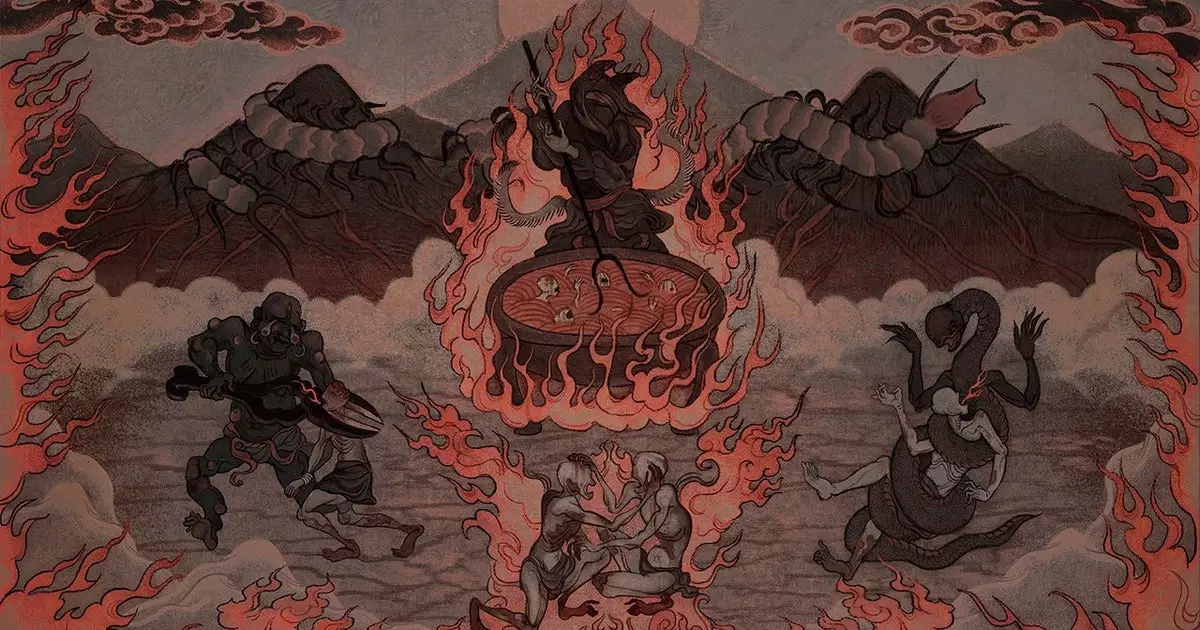In an era inundated with games that strive for hyper-realism and seamless play, *Labyrinth of the Demon King* emerges as a dissonant and chaotic symphony echoing the nightmares of past horror classics. Drawing intoxicating chaos from the likes of *Silent Hill* and *Amnesia: The Dark Descent*, this title takes players on an arduous journey through murky atmospheres and unsettling encounters that challenge both their resolve and expectations. With its mythic feudal Japan backdrop steeped in lurking horrors and malevolence, this game opts for a hardened approach to horror that is as brutal as it is compelling.
One cannot help but feel that *Labyrinth of the Demon King* embodies the essence of gaming’s darker recesses while stripping away the comforting layers of polish that many contemporary titles boast. Here, the craftsmanship lies within the imperfections—an intoxicating draw for those conventionally alienated by the sleek designs of modern horror games. Players are introduced to a raw, pulsating world that thrives on unpredictability and delivers the exhilarating purgatory of uncertainty.
Survival of the Unluckiest
The game’s progression system hinges on a stamina-based combat approach, akin to the *King’s Field* RPGs, thrusting players into the heart of frenetic engagements that feel as treacherous as they are strategic. As one traverses this eerie landscape, filled with grotesque inhabitants and unforgiving environments, every move becomes crucial. Unlike typical RPG mechanics where players can progress with ease and avoid confrontation, *Labyrinth of the Demon King* demands a calculated approach, forcing players to adapt or face demise.
Navigating through the haunting realm peppered with whispering fungi and the menacing filthbastards awakens a palpable fear, reminiscent of classic horror cinema’s most visceral moments. The grotesque antagonists are not merely foes; they reflect an unyielding world indifferent to the player’s plight. The grotesque creatures, engaged in their own macabre dance of hostility, offer insight into the game’s vision for horrifying immersion—where survival feels less like triumph and more like a temporary reprieve from inevitable doom.
A Desolate Arsenal
Amidst the swirling dread, the player’s inventory is strikingly dismal—a far cry from the glimmering loot typical in adventure games. Armed only with a tarnished katana, a bottle of sake, and decrepit bandages that threaten further injury rather than aid, the game bluntly thrusts players into an unprepared conflict. This design choice enhances the sense of vulnerability and helplessness; every fight becomes a battle of resource management, where each wasted action reverberates with harsh consequences.
Yet, this is not mere frustration—it’s a thematic exploration of human fragility when faced with monstrosity. In an era where players gear up with endless supplies, the scarcity found in *Labyrinth of the Demon King* serves as a stark reminder of the raw fear often sidelined by trivial mechanics.
The Art of Discomfort
The art direction itself is a stunning homage to the pixelated horror aesthetics reminiscent of the early 90s, which blends chaos with a warped nostalgia. The graphical choices evoke a visceral reaction, pushing each element—from the flickering lights to the disorienting camera angles—into the realm of the uncanny. It feels as though players are caught in a living nightmare where comfort is stripped bare, and confusion reigns supreme.
Moreover, the game’s auditory landscape is deliberate in its dissonance, creating a cacophony that heightens anxiety and anticipation. The rattling sounds and distant echoes pull players deeper into a chilling ambiance, one that is inseparable from the narrative. Crafting soundtracks that reverberate with the heartbeats of fear-driven experiences, the game cultivates a lingering tension often lost in cleaner, more palatable titles.
A Journey of Illusions
Embarking on this journey requires a bold heart willing to confront the grotesqueries lurking in the shadows. As players seek to liberate the self-proclaimed blacksmith, a tangible tension surrounds the quest for the elusive key possessed by the menacing “cat.” The relentless hunt through corridors filled with ambiguities and enigmas reinforces an overarching theme of isolation—the player is as much an outcast in this world as the wretched souls that populate it.
In a landscape where expectations can be both thrilling and perilous, *Labyrinth of the Demon King* emerges as a puzzling journey, steeped in disarray and darkness. The ambitious creation captivates those unafraid to dance with demons, forcing players to embrace the chaos as they navigate the treacherous terrains of fear. It is more than just a game—it’s an experience where the players’ every choice echoes in a world ruled by despair.

